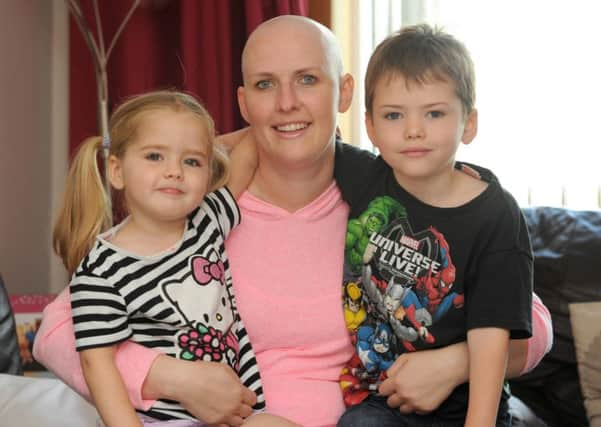£3 million boost for Edinburgh and Glasgow cancer centres


Leading charity Cancer Research UK and the Chief Scientist Office plan to invest a total of almost £3 million over the next five years in groundbreaking work at Experimental Cancer Medicine Centres (ECMCs) in Edinburgh and Glasgow.
The cities have been chosen by an international panel of experts as two of just 18 locations in the UK to secure funding in the latest review of the ECMC network.
Advertisement
Hide AdAdvertisement
Hide AdScientists at the Edinburgh ECMC are looking for specific genes and proteins in tissue and blood samples from breast cancer patients that could act as markers to help them identify which cancers are more likely to respond to chemotherapy.
They hope that by doing this they will be able to tell very early on whether chemotherapy is working or not. This could help some women avoid having chemotherapy before surgery – and the side effects that go with it – if it is less likely to work for them.
The ECMCs aim to bring better treatments to cancer patients in the UK faster via both the adult and children’s network of centres. These are hubs where promising cancer treatments – including small molecule drugs, surgery, radiotherapy, immunotherapy and vaccines – are safely tested through clinical trials.
Professor David Cameron, Edinburgh ECMC co-lead, said: “We are thrilled that Edinburgh has secured this funding. This award represents a critical investment in our research infrastructure, equipping us with the key laboratory and clinical tools needed to advance the understanding and treatment of cancer for the benefit of people in Scotland and beyond.
Advertisement
Hide AdAdvertisement
Hide Ad“It will be used to support essential posts in the ECMC – such as research nurses, data managers and specialised laboratory technicians – that will help us develop and test new treatments for a variety of different cancers, including ovarian, breast and bowel cancers.” Every year, around 31,700 people are diagnosed with cancer in Scotland, and around 15,900 people die of the disease.
Victoria Steven, Cancer Research UK spokeswoman for Scotland, said: “This crucial investment is recognition of the fantastic research taking place in Edinburgh and Glasgow.
“One in two of us will be diagnosed with cancer at some point in our lives, so it’s reassuring to know that, thanks to our supporters, Cancer Research UK is able to fund some of the best and most promising research here in Scotland, to help more people survive. “Cancer survival has doubled since the early 1970s in the UK and Cancer Research UK’s work has been at the heart of that progress – but every step our doctors, nurses and scientists take relies on donations from the public and the tireless fundraising of our supporters.” ‘This award will help us develop new treatments for a variety of different cancers’ Sarah Glendinning from Edinburgh, just 34 when diagnosed on 12 May this year, is taking part in a study at Edinburgh ECMC. Samples taken from her during treatment are being processed by the centre, a collaboration between NHS Lothian and the University of Edinburgh.
Sarah who is mum to Kairan, five, and daughter Jaimie, three, was in the US with her partner Michael in April this year when she found a lump in her left breast. They were visiting his mother, who was very unwell and, sadly, died the day after they arrived. That night, when Sarah lay down in bed, a sudden instinct made her feel her breasts.
Advertisement
Hide AdAdvertisement
Hide AdSarah said: “I don’t know what made me check my breasts that night, maybe it was because Michael’s mum had had breast cancer in the past. I might not have found the lump if I hadn’t felt my breasts when I was lying down. It was quite an obvious big, golf-ball lump.”
She went straight to see her GP on her return to Edinburgh, and was referred to the breast clinic for an ultrasound and a biopsy.